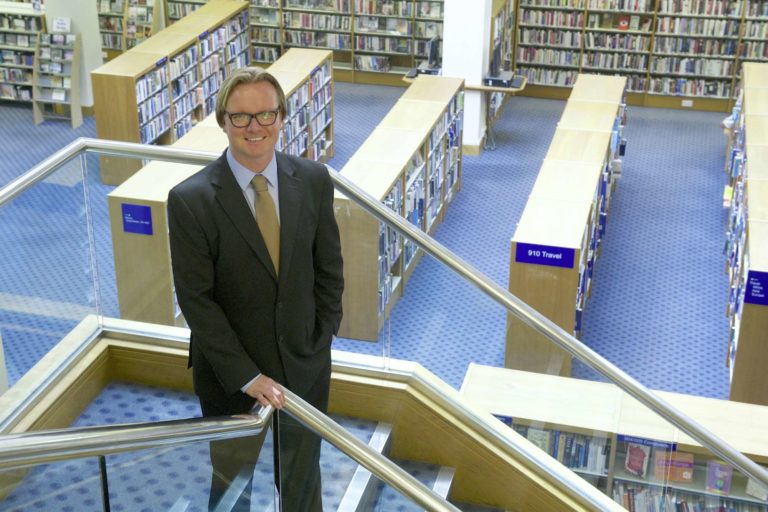Why Jersey Library Embraces National Coding Week

23rd August 2018
Background
For Ed Jewell, coding, like any written language, is all about communication – promoting the intricacies of computer programming and digital literacy within the wider community is high on his agenda. The son of an English teacher, Ed took the reins at Jersey Library in 2014 after moving from Guernsey where he had lived since age eleven. The Maidstone-born Head Librarian likes to keep a keen eye on the digital services on offer at other libraries around the UK, and he’s happy to admit that the original idea for Jersey’s own Eagle Labs, located on the first floor of the Halkett Place building, came from the Exeter Library in Devon.
Libraries need to remain relevant as information providers
“Digitalisation has become a major factor in our everyday lives,” said Ed, “and if libraries want to remain relevant as information providers, they need to keep abreast of the latest developments. The books are very important of course, but these days they are just a part of our service portfolio. As providers of knowledge and promoters of lifelong learning, it’s very important that we develop ‘digital’ alongside our more traditional services.”
Eagle Labs
Eagle Labs is a working partnership between Jersey Library and Barclays Bank, and it offers a wide range of co-working spaces and support services to give start-up businesses and scale-up communities a boost by providing access to 3D printers, laser, and vinyl cutters, Augmented and Virtual Reality equipment, and of course, WiFi.
It’s also the venue for the highly popular Scratch Coding Club, where under the guidance of Principal Librarian, Sharon Jones, a programming language developed at MIT is taught to primary school kids through all kinds of fun and exciting projects.
The Library has two open-learning suites of computers, allows for the download of ebooks and digital magazines, plus a wide range of national and international newspapers. It also runs support sessions for ECDL training, and hosts a variety of events that aim to make digital disciplines, in particular coding, more accessible for the general public.
“A diversity of public interests and curiosity.”
National Coding Week
“What’s so great about National Coding Week,” said Ed, “is that while established coders and speakers get plenty of opportunities to talk with their colleagues and other people within their own industry, National Coding Week is where they come into contact with a broader section of the community. It might be young children, OAPs, and a more varied audience who ask very different questions to what the experts are used to.” And it’s this diversity of public interest and curiosity that can prove quite challenging for the guest speaker.
Ed is in no doubt that digital learning and digital skills have become core aspects of what Jersey Library has to offer. He’s also keen to stress that it’s a team effort and that the ‘library as an entity’ is moving forwards on the digital journey.
Be diverse in who you reach out to.
Tips for libraries taking part in National Coding Week
When asked if he had any advice for other libraries who would like to follow his lead, Ed outlined his 5 point strategy to encourage and promote effective interaction between the community and the digital and coding industries:
1 Engage with the local community first and gauge levels of interest
2 Make space and resources available
3 Reach out to potential partners on all levels, from within local government, inside the digital industry, commerce, local schools, and colleges, etc
4 Provide support through events, ongoing workshops, talks, and demonstrations
5 Think beyond coding. Focussing on coding itself is good, but try to think of what it can achieve in terms of apps, etc.
“Libraries have wonderful facilities and resources they can draw on to bring the coding community and the non-coding public closer together. Libraries all have free WiFi, the People’s Network, and of course, great collections of books. This positions them as a more accessible gateway to coding and new technologies that might otherwise remain closed to some sectors of the community.”